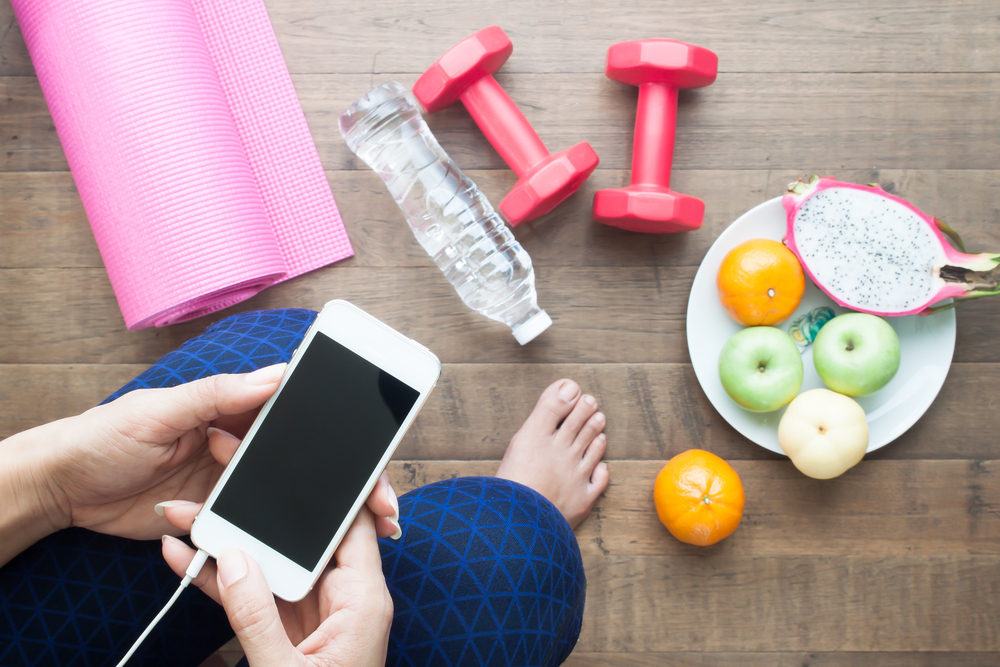
You know the feeling: Bootcamp warmup begins and, during your jumping jacks, you feel your burrito bouncing around in your stomach. No bueno! On the flip side, we’ve all had a morning when we wake up with just enough time to make it to class, only to have drag through the entire workout.
No matter where you fall on the activity spectrum, you should take a look at what you’re consuming before and after your workouts. Pre-workout and recovery nutrition are incredibly important parts of the workout itself. If you’re depriving yourself of adequate nutrients, you could be stifling your potential as well as limiting your progression.
The tricky thing is, it’s all dependent on your body. What works for you may not work for your bestie. And what may work for your HIIT workouts may not work for your yoga practice. The key is to stay focused on what your body is telling you. If you listen to it, you’ll learn to better understand your needs and anticipate your best options. To help start you down that path of understanding, we spoke with registered dietitian and founder of Real Food Court, Courtney Ferreira, about the relationship between food and exercise.
Stay Hydrated
First off, the number one rule is to stay hydrated. (Say it louder for the people in the back!) Staying hydrated is essential for your body to function, let alone perform at the higher levels workouts require. Without it, you are bound to feel weak, tired, and dizzy, and you also run the risk of more serious side effects like muscle cramps and sickness. No matter what time of day, try to hydrate before, during, and after your workout.
Fuel Up
Think of your body like a car—you’re not going anywhere without fuel. Your body has the same relationship with its “fuel,” specifically, carbohydrates. Carbs aren’t just Oprah’s favorite—they are also the fuel that powers your muscles. Quick biology lesson: Our body breaks carbohydrates down into glucose. Glucose is then broken down through glycolysis to produce energy. It can also be stored as glycogen to be used later. “It is important to set yourself up for a good performance by providing some energy, or glucose, into the blood stream before your workout begins,” says Ferreira.
While research studies have shown that eating carbs 15 minutes before exercise helped participants improve their endurance (running 12.8 percent longer than when they had the placebo), it’s not required that you eat immediately before your workout. Ask yourself two basic questions: What kind of workout am I doing? Am I hungry?
“The idea of needing to eat before and immediately after a workout is most important for those who are doing intense workouts or are training or competing or have the goal of muscle mass,” continued Ferreira. “For the recreationally active person, exercise can be fueled by a snack and follow with a normal meal.”
In any case, the best exercise-boosting carbs include whole foods. Look for whole-wheat breads, fruits, even starchy vegetables—things that slow the carbohydrate breakdown and provide a steady release of glucose. Having the proper fuel will help you improve the intensity and quality of your workouts. We asked a couple of active Baltimoreans what they prefer:
“If I’m just hitting the gym after work, I usually snack on lemony hummus and veggies before I leave the office,” says Nabila Chami.
“I prefer to workout on an empty stomach, but will sometimes grab a handful of nuts or piece of toast with nut or sunflower seed butter on it if I’m going to be really pushing weights or endurance,” says Corinne Weaver.
Strong Recovery
While you may want to reach for that burger as a reward for a tough workout, it’s important to make smart choices for your body. After your workout is a key time to repair muscle and stabilize your blood sugar, which are depleted during strenuous workouts. Remember, during your workout, your body burns fuel from stored energy and food you’ve eaten recently. After this happens, our muscles start to use available protein to rebuild within a few hours of working out, but your body is especially good at absorbing carbs and protein within 45 minutes after your workout.
No matter what, Ferreira reminds us to be prepared. “You will never be able to predict how hard you will work or how tired you will feel because this can be impacted by what you eat early in the day and how mentally stressful your day is,” she says. “If you are driving home from the gym, the park, a class, it is important to have something on hand just in case. The last thing you want is to get dizzy or nauseated.”
Having balanced, real foods after your workout will help give you the fuel you need to recover and keep you satisfied for the night or until your next meal. Here are some more examples of tasty post-workout meals/snacks:
“I like ice-cold lemon water post workout—it feels ultra refreshing,” says Ashley Goetz. “And I usually prefer fresh, raw veggie dishes post-workout too or like a juicy, crisp, tart apple.”
“After workout meals are usually veggie and fruit-focused,” says Weaver. “Cherries and almonds are a great combo for my muscle recovery, and lean fish or eggs with water-rich zucchini or a carb boosting sweet potato.”
Care For Yourself
Most importantly, learn to listen to your body. Understand what it feels like to be hungry, have high energy, have low blood sugar, and more. Watch for signs of nausea, dizziness, and fatigue. Test out different options for your eating patterns and see what works best for you.
As Ferreira comfortingly puts it, “Although it may take you time to figure out what foods work best for you, I encourage you to experiment until you do. Remember, your body can truly adjust to anything. Just have patience and take it slow.”
